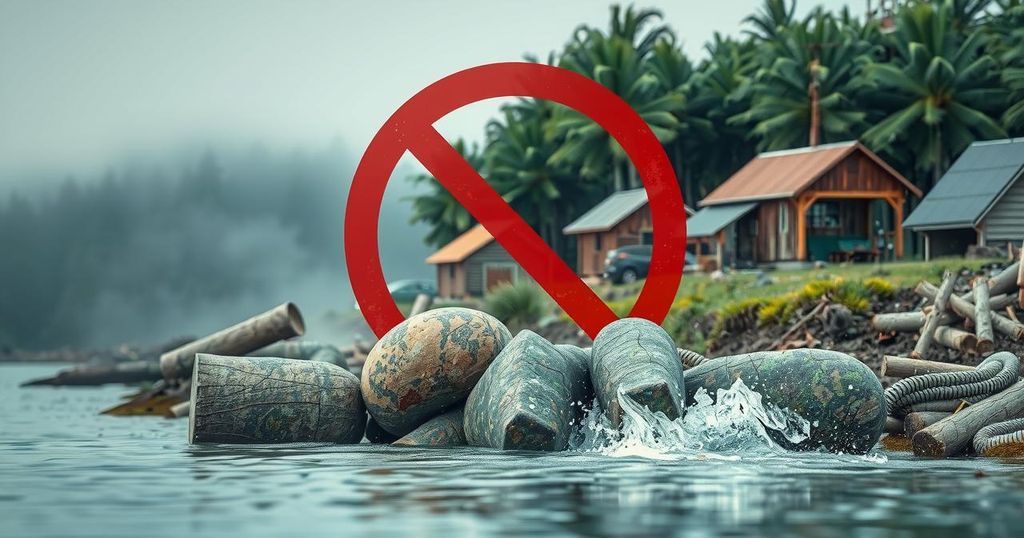Climate Accountability: A Call to Action Ahead of the 2025 Conference

As we near 2025, the anniversary of the Paris Climate Agreement, many countries have yet to fulfill their climate commitments. The need for accountability, especially regarding the United States under President Trump, is emphasized as nations prepare for an important climate conference in Brazil. Effective strategies, including binding agreements and possible sanctions against free riders, are vital to ensure compliance and combat climate change effectively.
As we approach 2025, we mark nearly nine years since the Paris Climate Agreement was enacted, wherein almost 200 nations pledged to limit global temperature rise to 1.5 degrees Celsius above pre-industrial levels. Despite these commitments, many countries have failed to fulfill their obligations, prompting a call for increased accountability. Free riding—where nations benefit from others’ climate actions without contributing—is detrimental to global efforts to mitigate climate change. In light of potential catastrophic consequences of climate inaction, a more rigorous approach is necessary.
The upcoming climate conference in Brazil this November provides a crucial opportunity for nations to reaffirm their commitments with binding agreements and enforceable measures against those who fall short. Notably, the United States under President Donald Trump presents a significant challenge, given his previous withdrawal from the Paris Agreement and plans to dismantle clean energy initiatives. As one of the largest historical contributors to global greenhouse gas emissions, the U.S. bears a moral responsibility to lead by example in climate action.
Current projections show the U.S. ranks second only to China in contemporary emissions, exacerbated by Trump’s push to increase fossil fuel production. In 2022, the U.S. emerged as the world’s fourth-largest oil exporter, which raises concerns about the efficacy of existing climate agreements that do not account for emissions from exported fuels. With Trump set to revive his administration’s policies, there is growing concern that the U.S. may undermine global climate initiatives.
Trump’s past admonitions towards NATO allies regarding defense spending provide a stark contrast to the dire consequences of climate change. Notably, while he insisted on greater military expenditure from allies, it is critical to recognize that climate change poses a more significant threat than military conflicts.
In response, it is essential to employ sanctions and legal repercussions against countries failing to protect the climate. The International Court of Justice has begun contemplating the ramifications for states neglecting their climate commitments, highlighting the need for a unified global response. Active financial sanctions against corporations contributing to climate degradation will also play a vital role in ensuring accountability and progress against climate change.
To underscore these points, the international community must hold the United States to the same standards it has imposed on NATO allies—prioritizing climate action as an imperative for global sustainability. As negotiations intensify, sending a clear message to both the Trump administration and the global community regarding the importance of adhering to climate commitments is crucial for our collective future.
The Paris Climate Agreement, established in 2016, represents a historic commitment by nearly 200 countries to limit global warming and mitigate climate change impacts. This agreement sets a target to keep temperature increases below 1.5 degrees Celsius compared to pre-industrial levels. However, despite nearly a decade passing since its inception, many signatory nations have failed to meet their obligations, exposing vulnerabilities in enforcement and accountability. As the effects of climate change become increasingly perilous, the need for collective action and adherence to international agreements has never been more urgent. The imminent climate conference in Brazil poses both opportunities and challenges, especially with significant players like the United States potentially reverting to more harmful policies under the leadership of Donald Trump, who has a history of resisting climate action and promoting fossil fuels.
In conclusion, as we approach the crucial climate conference in Brazil, the international community faces a pivotal moment that could determine the future of climate action globally. Increased accountability, enforceable commitments, and potential sanctions against non-compliant nations are essential strategies to ensure that collective efforts to combat climate change are effective and equitable. Furthermore, the actions and policies of the United States under President Trump will significantly influence global climate initiatives, underscoring the urgent need for a cohesive and determined approach to addressing the climate crisis without delay.
Original Source: www.meer.com






